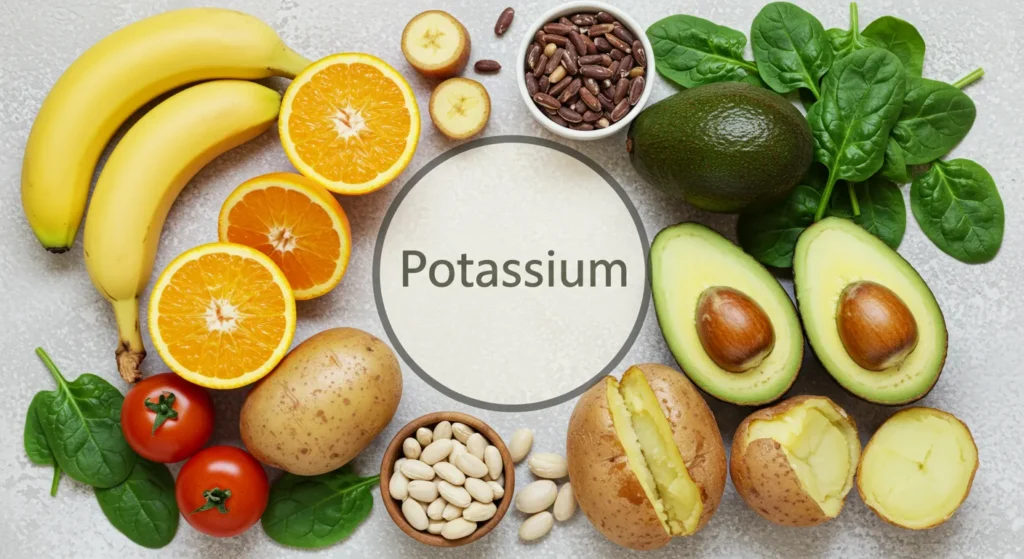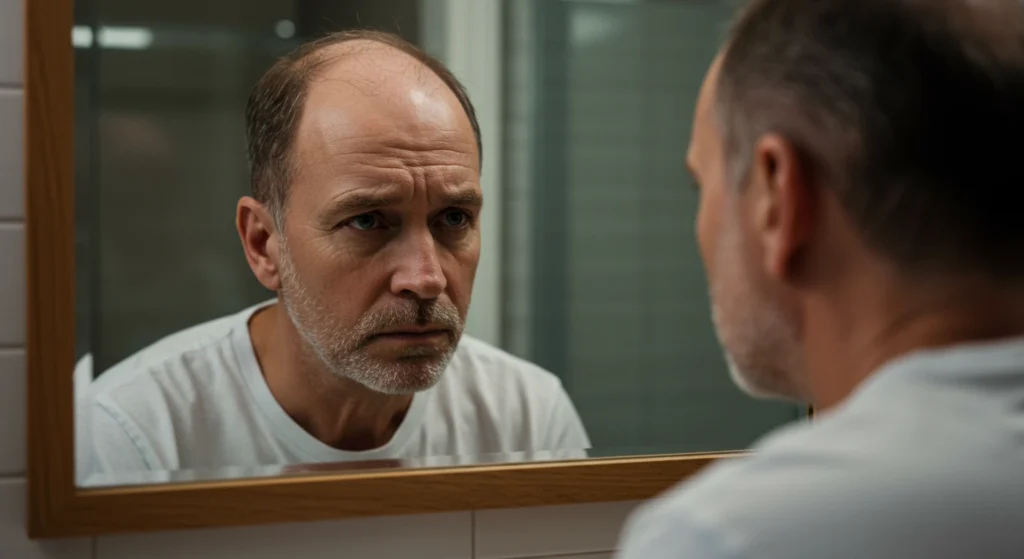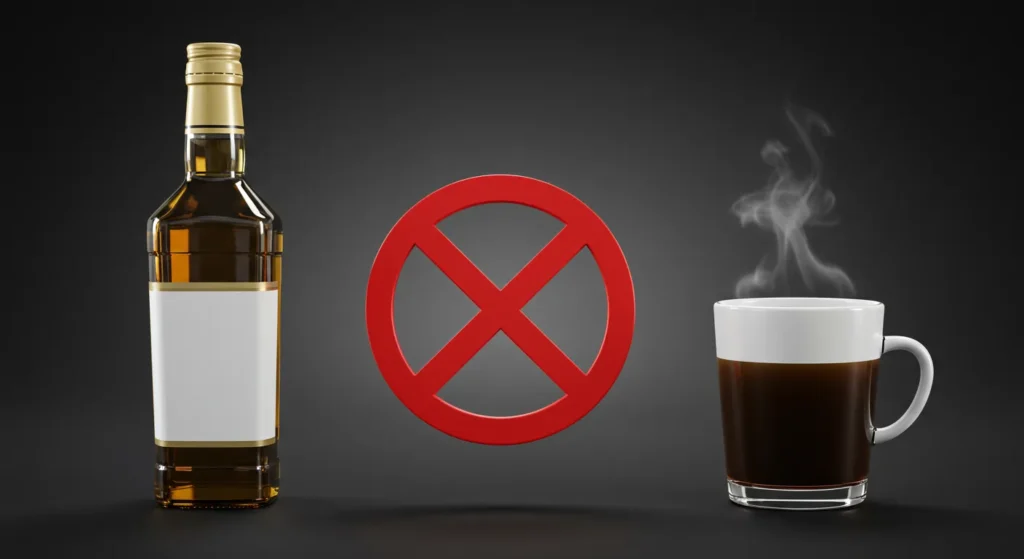Are you wondering, can low potassium cause hair loss? If you’re experiencing unexpected shedding or thinning hair, a hidden nutrient imbalance might be the culprit. Potassium plays a crucial role in cellular function, including hair follicle nourishment and scalp circulation.
In this article, we explore the link between potassium deficiency and hair loss, uncover symptoms to watch for, and provide expert-backed solutions. Whether you’re curious about prevention or seeking answers for unexplained hair thinning, this guide offers trusted, medically reviewed advice to help you take control of your hair health.
What Is Potassium and Why Is It Important for the Body?

Potassium is a vital mineral and electrolyte that supports multiple physiological functions. It helps:
- Regulate fluid balance
- Maintain proper nerve and muscle function
- Balance blood pressure
- Support cellular transport, including nutrients to hair follicles
In the context of hair, potassium indirectly supports scalp health and follicle nourishment, both of which are essential for maintaining healthy hair growth.
The Relationship Between Potassium and Hair Growth
Although potassium isn’t typically the first nutrient associated with hair loss, emerging research and anecdotal evidence suggest it plays an important supporting role.
How Nutrient Deficiencies Contribute to Hair Loss
Hair follicles are among the most metabolically active parts of the body. They require a steady supply of nutrients to remain in the growth phase. Deficiencies in essential minerals — even indirectly — can push hair follicles into the resting or shedding phase (telogen effluvium).
Scientific Evidence Linking Low Potassium to Hair Thinning
While few studies examine potassium in isolation, research shows that electrolyte imbalances, especially involving potassium, can disrupt cellular signaling, impact blood circulation, and contribute to general nutrient malabsorption — all of which negatively affect hair.
Potassium’s Indirect Role in Scalp Circulation
Potassium helps regulate blood vessel tension. A deficiency may contribute to reduced scalp blood flow, which can hinder the delivery of oxygen and nutrients to hair follicles, weakening the hair shaft over time.
Symptoms and Signs of Low Potassium (Hypokalemia)
General Symptoms
- Fatigue or weakness
- Muscle cramps or spasms
- Irregular heartbeat
- Constipation
- Tingling or numbness
Hair-Related Symptoms
Although hair loss is not the most common symptom of hypokalemia, many patients report increased shedding, brittleness, and slower regrowth when potassium is chronically low.
Who Is at Risk?
You might be more prone to potassium deficiency if you:
- Follow a low-potassium diet
- Use diuretics or laxatives regularly
- Have chronic conditions like kidney disease or eating disorders
- Experience frequent vomiting or diarrhea
Can Low Potassium Alone Cause Hair Loss?

Nutritional Deficiency vs Multifactorial Causes
Hair loss is rarely caused by one factor alone. However, low potassium can contribute to a nutrient-deficient environment that weakens hair growth over time.
Other Common Deficiencies to Consider
- Iron deficiency anemia
- Vitamin D deficiency
- Zinc or biotin insufficiency
If you’re noticing hair loss, a comprehensive nutrient panel is recommended to identify overlapping issues.
When Potassium Plays a Contributing vs Primary Role
Low potassium might not be the sole cause, but it can be a silent aggravator, especially if you’re already dealing with stress, hormonal imbalances, or poor scalp health.
Diagnosing and Managing Potassium Deficiency
Blood Tests for Potassium
A simple blood test can measure your potassium level. Normal ranges fall between 3.6 and 5.2 mmol/L. Values below 3.5 indicate hypokalemia.
When to See a Healthcare Provider
Seek medical advice if you’re experiencing hair loss along with fatigue, cramps, or heart palpitations. A dermatologist or trichologist may suggest a potassium test as part of a broader diagnostic workup.
Evaluating Hair Loss with a Trichologist
A trichologist can assess whether your hair loss pattern aligns with nutritional deficiencies and may recommend blood panels or scalp imaging.
How to Improve Potassium Levels Naturally
Potassium-Rich Foods for Hair Health
Incorporating the following foods can help restore potassium balance:
- Bananas
- Avocados
- Sweet potatoes
- Spinach
- Oranges
- Beans and lentils
Supplements: When Are They Needed?
If dietary intake isn’t sufficient or if your deficiency is severe, your doctor might recommend a potassium supplement. These should only be taken under medical supervision due to the risk of hyperkalemia.
Lifestyle Tips to Support Nutrient Absorption
- Avoid overuse of diuretics and laxatives
- Reduce caffeine and alcohol intake
- Maintain a balanced diet rich in fiber and whole foods

FAQs About Potassium and Hair Loss
Can low potassium cause sudden hair shedding?
Not typically. Shedding due to potassium deficiency tends to occur gradually and often alongside other symptoms.
How long does it take to see improvement after fixing potassium levels?
Hair regrowth may begin within 8–12 weeks, depending on the severity of the deficiency and other contributing factors.
Is hair loss from low potassium reversible?
In many cases, yes — especially if caught early and corrected promptly.
Can too much potassium cause hair issues?
There’s no strong evidence linking high potassium to hair loss. However, hyperkalemia is a serious health risk and should be monitored by a doctor.
Should You Worry About Potassium if You’re Losing Hair?
Low potassium is a potential contributor to hair loss, especially if your diet is lacking or you’re experiencing other symptoms. While it may not act alone, correcting this deficiency can improve scalp circulation, support follicle function, and enhance hair quality.
If your hair is thinning and you’re unsure why, it’s worth investigating your nutrient profile, including potassium levels.
Speak to a Hair Specialist in Islamabad
Are you concerned about unexplained hair loss? Book a consultation with Dr. Rana Irfan, an ABHRS and ISHRS-certified, leading hair restoration expert in Islamabad, to get a comprehensive hair and nutrition analysis. Personalized plans, blood tests, and expert care can help you regain your confidence and your hair.
